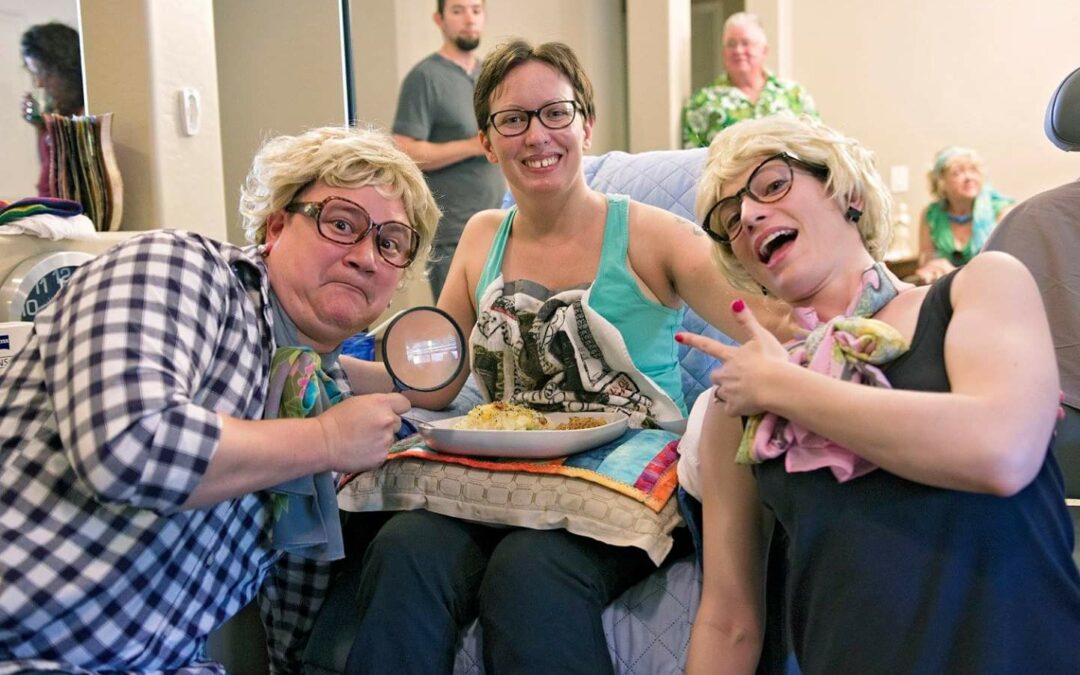“Lupies” Share What it’s Like to Experience this Lifelong Disease
By Rakini Chinery
To understand what living with Lupus is like, a person must first know what it is. Many people have never heard of Lupus, and since science hasn’t been able to figure out a cause, let alone a cure—even though the disease impacts five million people worldwide, most of them women—that’s understandable.
Lupus is a chronic autoimmune disorder that can damage any part of the body. The immune system of someone with Lupus cannot distinguish between healthy and unhealthy cells. Therefore, it goes after everything. It’s not contagious, and it’s not like or related to cancer.
Lupus works in “flares,” with symptoms flaring up and becoming debilitating sometimes, and then going into remission … when they’re dramatically less noticeable.
While some people can live with Lupus and experience minimal problems, others experience vast life changes for people diagnosed with it—who are often referred to as “Lupies.”
Extreme fatigue is perhaps one of the biggest battles, because it can bring about feelings of helplessness, depression, anxiety, and more.
Other symptoms include chronic pain, headaches, fevers, light sensitivity, painful joints, swelling, a “butterfly” rash on the face, memory loss, medication side effects, and visible skin lesions … just functioning day-to-day requires tons of effort.
Fatigue is one of the biggest battles. Extreme fatigue which can bring about feelings of helplessness, depression, anxiety and more. Headaches, chronic pain, fevers, light sensitivity, painful joints, swelling, and the tell-tale “butterfly” rash that appears on a Lupus patient’s face.
Most Lupus patients find that the ongoing effects of Lupus force them to cut back on social activities and even find themselves no longer able to work full-time due to Lupus complications.
This lifelong disease, which is real and can be devastating for patients and for their families, can dramatically alter someone’s life. This is the case for my daughter Helen, who often feels like she has no hope of returning to her previous “normal.”
In 2011, as a result of Lupus, Helen suffered a massive brain hemorrhage and nearly died. While she was in a coma following her brain surgery, she suffered kidney failure, also as a result of Lupus. Doctors at Barrow’s Neurological Institute saved her kidneys with massive doses of Cytoxan, and she survived.
Helen’s life before Lupus
When Helen was in her late twenties, she lived a fulfilling life in Los Angeles. She was a sommelier for Chef Thomas Keller at Bouchon in Beverly Hills. She was enjoying her career, but she was sick all the time. At the end of 2010, too sick to live alone, she came home to live with my husband and me.
Doctors diagnosed her with Lupus.
An Opponent that Puzzles Doctors
Between that initial diagnosis and the life-threatening episodes, Helen’s symptoms progressed quickly.
Now, eight years after the hemorrhage, we live with the disease every day. Helen is permanently disabled. Lupus continues to compromise her health; it affects her kidneys, brain, stomach, and lungs. Most importantly, it has taken her joy for life. She fights the monster called Lupus—a relentless opponent—every day, struggling to keep her head above water.
Treatment Options
Treating Lupus is a lifelong process and requires ongoing planning and communication between the patient and his or her healthcare team.
Unlike other chronic diseases like diabetes or asthma, there is no cure or treatment specifically for Lupus. Most of the medications doctors prescribe for Lupus have been used primarily to treat other diseases and have proved helpful treating Lupus symptoms, too.
While medication can help relieve some of these symptoms, “Lupies” must get creative and dial in on what works best for them. For example, exercise helps some people, while following a strict diet helps others. Holistic treatments such as acupuncture and massage, CBD oil, and other therapies can also help “Lupies” find their way through life.
If you have Lupus or love someone who does please reach out to the Lupus Foundation of America, at www.lupus.org, for help.
Also, visit Helen’s Facebook page, https://www.facebook.com/Apocolupus/, which she designed as a source of support for Lupus patients.

